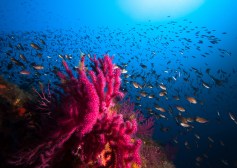Interview with Experts: Insights into Thriving in Marine Conservation Fields
Marine conservation is a vital and rapidly growing field that aims to protect and restore our oceans and marine ecosystems. As climate change, pollution, and overfishing threaten marine life, the demand for skilled professionals in this area continues to rise. In this article, we explore insights from experts working in various marine conservation careers, providing valuable advice for those interested in pursuing a path in this rewarding sector.
Understanding Marine Conservation Careers
Marine conservation careers encompass a wide range of roles dedicated to the protection of ocean ecosystems. These include positions such as marine biologists, conservation scientists, policy advisors, oceanographers, and environmental educators. Each role contributes uniquely to understanding marine environments and developing strategies for their preservation. For example, marine biologists study species behavior while conservation scientists work on restoration projects that aim to rehabilitate damaged habitats.

Essential Skills for Success
Experts emphasize that a combination of scientific knowledge and practical skills is essential for success in marine conservation careers. Strong analytical abilities are crucial for interpreting data related to ecosystem health. Furthermore, communication skills are equally important; professionals often work with communities or policymakers to advocate for sustainable practices. Experience with fieldwork—whether through internships or volunteer opportunities—can also provide hands-on learning that enhances both knowledge and employability.
Education Pathways
Most careers in marine conservation require at least a bachelor’s degree in fields such as biology, environmental science or oceanography. Many experts recommend pursuing advanced degrees (master’s or Ph.D.) which can open doors to research positions or specialized roles within organizations focused on policy development or high-level scientific research. Additionally, certifications related to specific technical skills—like scuba diving or GIS (Geographic Information Systems)—can be beneficial.
Networking and Professional Development
Networking is highlighted as crucial by seasoned professionals in the field. Attending conferences like the International Marine Conservation Congress provides opportunities to connect with other professionals and learn about current trends and job openings. Social media platforms like LinkedIn can also serve as valuable tools for networking with industry leaders and joining relevant groups dedicated to marine conservation topics.
Future Trends in Marine Conservation Careers
The future of marine conservation careers looks promising due to increasing global awareness about environmental issues affecting our oceans. A rise in funding from governmental bodies and NGOs reflects growing support for sustainability initiatives worldwide. Experts suggest that emerging technologies—such as remote sensing tools—will play significant roles going forward; thus familiarity with tech innovations will become increasingly sought after by employers.
In conclusion, pursuing a career in marine conservation offers an opportunity not only for personal fulfillment but also plays an integral part in safeguarding our planet’s future. By acquiring the necessary education, skills development through practice experiences, effective networking strategies alongside keeping abreast of future trends; aspiring individuals can thrive within this essential field.
This text was generated using a large language model, and select text has been reviewed and moderated for purposes such as readability.


